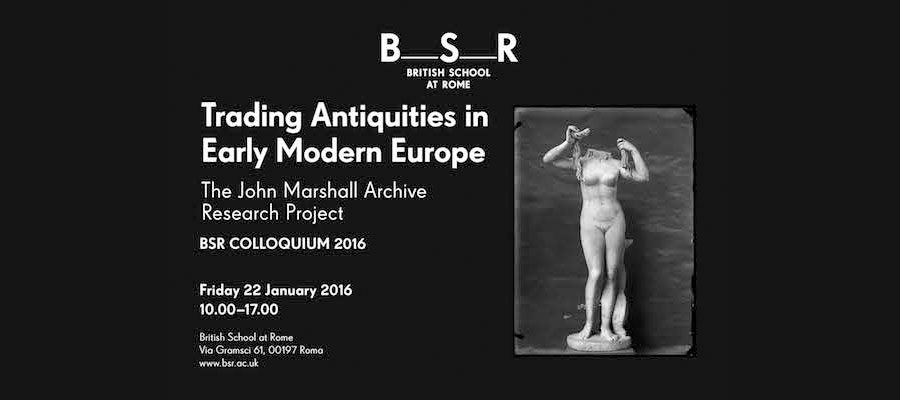Trading Antiquities in Early 20th-Century Europe: The John Marshall Archive Research Project, The British School at Rome, January 22, 2016
On 22 January 2016, a colloquium on John Marshall and the European antiquities trade in the early 20th century will be held at the British School at Rome as part of the John Marshall Archive Research Project (JMARP).
John Marshall (1862–1928) was a Classical art expert who worked as official agent for the Metropolitan Museum of New York between 1906 and 1928. While living in Rome and maintaining a close connection with leading dealers and intermediaries throughout Europe, Marshall was responsible for having found many of the finest pieces that comprise one of the largest antiquities collections in the world.
On his death, his private archive was bequeathed to the British School at Rome. The archive, containing photographs and handwritten documents pertaining to ancient art objects that were offered to Marshall, presents a rare view into the secret world of the antiquities trade. The JMARP, funded by the British Academy and private sponsors, began in 2013 with the aim of reconstructing and studying the trade of classical art in early modern Europe through Marshall’s agency.
An international team of scholars, experts in various fields of the humanities and social sciences, are participating in this project. Their goal is to contribute to a multidisciplinary study of the phenomenon, the results of which will be published in an edited collection of essays.
At the JMARP Colloquium, the research team will present to the larger public the results of their analysis, touching on topics that will be fully examined in the book: John Marshall and antiquities connoisseurship; the main players in the European antiquities market of the early 20th century; collecting and trading as a social and economic phenomenon; forgeries; antiquities and the formation of national identities; the infancy of the debate on cultural heritage and the conflicting ideologies and ethical principles behind collecting the classical past.
